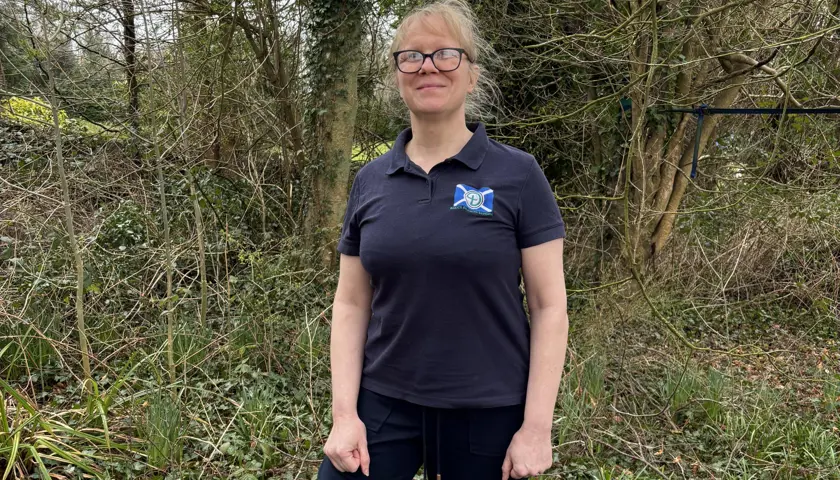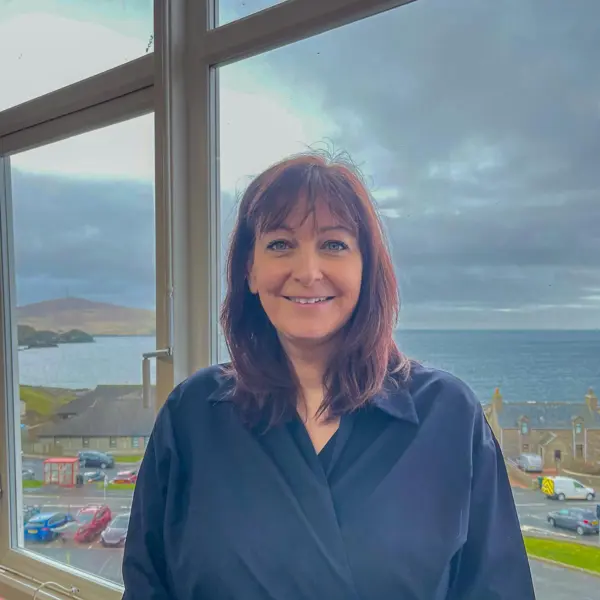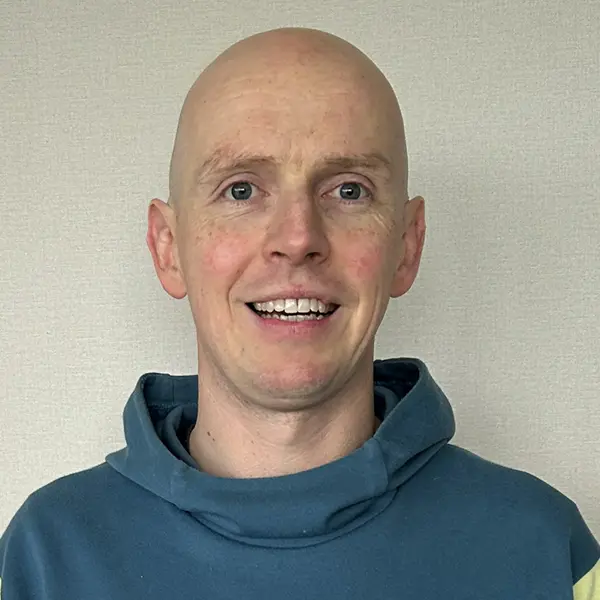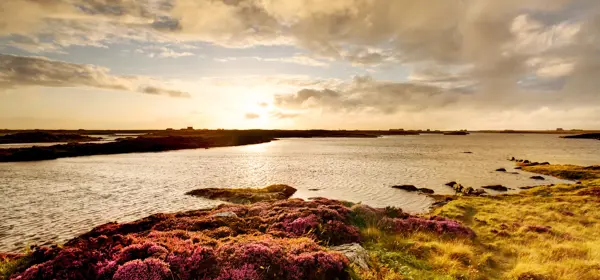Special job, special people – now they need specialty status
Special job, special people – now they need specialty status
Rural and remote medicine poses extraordinary challenges but brings great rewards. Doctors tell Jennifer Trueland why their work needs proper recognition
‘After many years, rural and remote medicine is becoming a specialty in its own right – and that’s amazing. It’s become clear to me that if we have a specialty that’s recognised, and you can get a credential in, you’re more likely to encourage people to want to work in the role and to live and work in those areas.’
Nikki Duncan is a rural hospital doctor in Galloway Community Hospital in Stranraer in the south-west of Scotland. She is one of seven doctors to have been accredited with the UK’s first rural and remote health credential (unscheduled and urgent care) by the GMC. For her, it’s an important step in gaining proper recognition for the skills and competencies required to work in remote and rural areas – a move she believes can only be good for patients and doctors.
Across the UK, approximately 12.5 million people live in remote and rural areas. Challenges in providing healthcare away from large population centres are well-documented, and staffing is a long-standing issue. This new credential is attempting to address these challenges. Developed by NHS NES (Education for Scotland), working in conjunction with the GMC and partner health bodies, it aims to recognise – and enhance – the knowledge and skills required to work in rural and remote settings.
The credential acknowledges the unique challenges faced by clinicians providing unscheduled and urgent care in rural, remote and island communities, explains Pauline Wilson OBE, consultant physician and associate medical director (acute) at NHS Shetland, who is also associate dean for remote and rural credentialing at NES.
Her own experience of returning to work in her native Shetland convinced her that medical training needed to be more flexible to meet the needs of doctors working in rural and remote areas, and the people they serve.
‘I’m a physician by trade and a Shetlander who returned home to live and work 20 years ago. I had undertaken adult medicine training as a registrar but as I was going to be required to look after paediatric patients on my return to Shetland I was interested in undertaking additional training to develop paediatric assessment and management skills before returning home – but it didn’t fit inside a nice training “box”.
'It made me realise that we needed to think outside the box if we wanted to prepare doctors to be fit for purpose for the remote and rural communities that they are going to serve.’
She was lucky in her training, she says, because she had an associate postgraduate dean who understood what she was trying to achieve and helped her to complete a bespoke registrar training programme in general internal medicine.
‘In the last 10 years or so, I’ve become really interested in how we raise the profile of the uniqueness of remote and rural practice, where it sits in training programmes, and how we ensure remote and rural careers are attractive to those doctors who are coming behind us.’
She has observed ‘very defined routes’ for doctors coming through traditional hospital specialties. ‘Doctors stay within their specialty, know where the jobs are, and there’s a specialist community; whereas in remote and rural we don’t have the same throughput of senior trainees coming through that can complete training in remote and rural areas; we don’t have “registrar grade” doctors, so we miss out on role-modelling for that group of doctors, and the pipeline of doctors who may identify with remote and rural as a career choice.’
Although the credential is led by Scotland, it’s a UK-wide programme and is open to doctors holding a certificate of completion of training in a range of specialties, including general practice and emergency medicine, as well as specialty and specialist grade doctors.
The credential is allowing us to make connections, and provides validity to what our jobs are, and doctors feel valued and recognised for what they do
Pauline Wilson
There are two routes to gain the credential: the ‘recognition’ route involves doctors providing evidence that demonstrates they meet the credential’s outcomes, while the ‘learner’ route involves experiential workplace-based learning with some blended learning such as specialty-based placements.
‘The credential is a flexible and proportionate programme that the GMC as our regulator has approved,’ says Dr Wilson.
‘It is a bespoke learning package that takes into account a doctor’s previous learning and experience. The whole purpose of it is to equip doctors, assure employers and to serve the community because we can demonstrate that we have the skill set that our patients expect and require of us.’
Patients should be able to be confident that a remote and rural doctor will have a working knowledge of what they are presenting with, although at a generalist rather than a specialist level – and that the doctor will know when they need to escalate or seek specialist input, Dr Wilson adds.
These are skills that should be recognised and the credential seeks to do that. The very act of setting up the credential has helped to start building a real community among the often-isolated group of doctors who have been providing remote and rural healthcare across the UK.
‘We are developing better networking across the rural landscape,’ she says, citing the development of ‘rural grand rounds’ where doctors in rural hospitals come together to meet and share experiences and present cases.
‘It’s interesting, because the credential is allowing us to make connections, and provides validity to what our jobs are, and doctors feel valued and recognised for what they do.’
Recruitment to jobs in rural areas has always been challenging but she hopes the credential will help. ‘It’s about how we show the next generation coming through that this is an attractive job, you get to know your patients, you have continuity of care, and you get to know generations of the same family. You get validation from your clinical work and you never stagnate.’
The BMA in Scotland welcomed the credential as part of continuing efforts to support doctors working in rural areas, including GPs.
Al Miles, deputy chair of the BMA Scottish GPs committee, says: ‘Recruitment of GPs to rural areas is often challenging, and the need for extended skills can be a potential deterrent to applicants, despite the high professional satisfaction of these roles. This credentialling offer, alongside other training such as pre-hospital emergency care provided by BASICS Scotland, can help GPs gain the necessary skills and confidence for rural practice, and assist recruitment and retention.’
Need for recognition
The BMA will continue to explore other avenues to support recruitment to rural areas, which is likely to include financial incentives to compensate for the additional training and skills needed.
Back in Galloway, Dr Duncan has also been campaigning for recognition for rural and remote medicine for many years – in part because she realised it would help with workforce issues.
‘As clinical director for the hospital, when I was trying to recruit people, I found that there were people from other specialties who were interested, but who didn’t want to abandon their training or to work somewhere without that sort of recognition. It became clear to me that if we have a specialty that’s recognised, and you can get a credential in, then you are more likely to encourage people to want to work in this role and to work in these remote areas.’
Ultimately, she would like to see remote and rural medicine follow intensive care in becoming a properly recognised career path for doctors.
She recalls when intensive care was in its early stages of becoming recognised as a specialty.
‘They were doing the same in trying to work out how they could get it credentialed and supported. Then it came to the point where you could do intensive care, but you had to have another specialty, so you had dual accreditation. But now it’s very much recognised in its own right. I can see that happening with remote and rural medicine and I very much hope that’s the case.’
Read two cases studies on rural medicine below
Varied case load
Sarah Yates finds her army experience complements her work on Skye
Sarah Yates, (pictured, top) a rural emergency physician based at Broadford Hospital on Skye, who also works as a medical officer with the army reserves, was one of the first to complete the credential.
As a recently qualified GP, she first got involved with the process when she was completing a GP fellowship on Skye to see how feasible it was for someone at the start of their career to work hard to meet the criteria for the credential.
‘I carried it on once I completed the fellowship to actually get the credential,’ she says. ‘The framework of the credential was like a really good handrail for me to upskill and feel confident in the role I was doing on Skye – which can be a little bit daunting when you work so independently and are so far from secondary care.’
She loves the variety that her job brings. As a major tourist destination, the summer months in particular bring a steady stream of patients. ‘There are lots of broken ankles, broken wrists, patients who need broken joints manipulating, but then you also get quite unwell patients coming through, particularly from cruise ships. It’s a pretty wide-ranging population group.’
I’ve always been interested in working in challenging environments
Sarah Yates
Managing permanent residents can also be challenging. ‘There’s quite an elderly population group who have complex health needs, and quite a lot of frailty, and there are other considerations too – a lot of people who live here don’t want to travel to Raigmore [hospital in Inverness] to get extra scans and investigations because it might involve a three-hour one-way trip for them,’ she says. ‘So, they can be quite complicated patients to deal with.’
Dr Yates loves living in the Highlands and enjoys outdoor pursuits such as hillwalking. But it’s the appeal of rural medicine which keeps her there. ‘I’ve always been interested in working in challenging environments where you’ve got to make quite complicated decisions and things are all a bit exciting. It’s probably similar to Army work – the training for Army and Skye complement each other because you often don’t have the equipment you’d like, and the logistics can be quite complicated.’
Beyond the adverts
There is a lot more to rural working than the lifestyle benefits, says Neil Shepherd
Neil Shepherd is a rural emergency physician at Caithness General Hospital in Wick, part of NHS Highland. He also works as a locum GP on Orkney. He believes that having the credential will make it easier for doctors to move between rural jobs, and that it will help rural hospitals to train the next generation of rural generalists.
He decided to work in rural medicine because he likes ‘doing a bit of everything’, he says. ‘It’s being able to see children, and elderly people, and trauma, and sick people. It’s the variation, and having to be good at most things, but also being aware of your limitations and getting help where you need to.’
He decided to work in rural medicine because he likes ‘doing a bit of everything’, he says. ‘It’s being able to see children, and elderly people, and trauma, and sick people. It’s the variation, and having to be good at most things, but also being aware of your limitations and getting help where you need to.’
We don't want people coming because they want to spend their time hillwalking; we want them coming because they want to provide clinical excellence in a nice area
Neil Shepherd
The emergency department at Caithness General Hospital sees around 11,000 patients per year, and numbers vary depending on the season. ‘It’s busier in the summer months, which can be a bit challenging because we don’t get any staffing. But it’s a very satisfying job.’
There is an ongoing need for healthcare in rural areas, he stresses. ‘You can’t shift everyone to Aberdeen for a sprained ankle, although we do shift people to Aberdeen for an MI, but only after we’ve thrombolysed them. If you’ve got a population there, you need to provide it with healthcare.’
Although he very much enjoys outdoor pursuits and the lifestyle advantages of living and working in beautiful rural locations, he admits to getting a bit fed up by recruitment campaigns that stress these aspects of rural jobs.
‘I think some of these advertising campaigns are a bit misplaced because they are pretty good at hamming up the lifestyle, but I think they should be pushing more on the work, because that’s what’s really satisfying. We can emphasise that we do good medicine in a rural area. We don’t want people coming because they want to spend their time hillwalking; we want them coming because they want to provide clinical excellence in a nice area.
‘That’s part of the aim of the credential – if you’ve got an educational structure that people can work towards, that helps support clinical development and job satisfaction, as well as living in a nice area, that will hopefully attract more people to come and work in rural areas, and to stay.’
Cohorts 2 and 3 of the recognition route are due to start in April and August, while the first cohort in the learner route is due to begin towards the end of this year.
- For more information on the credential, visit the NHS Education for Scotland TURAS site






